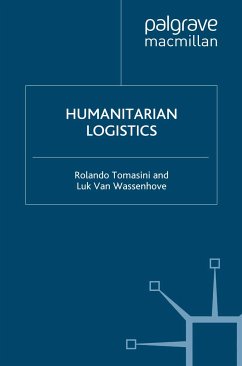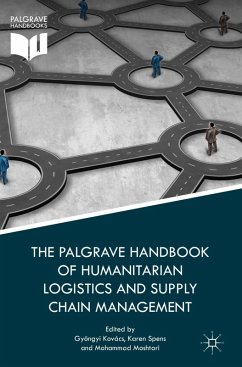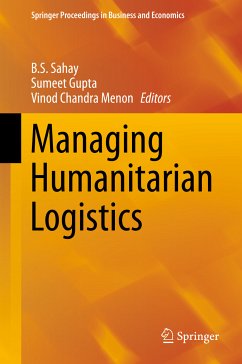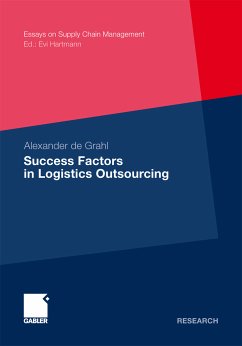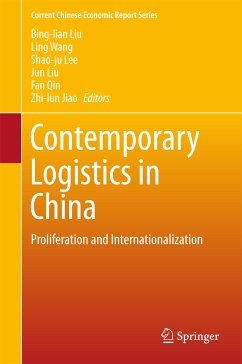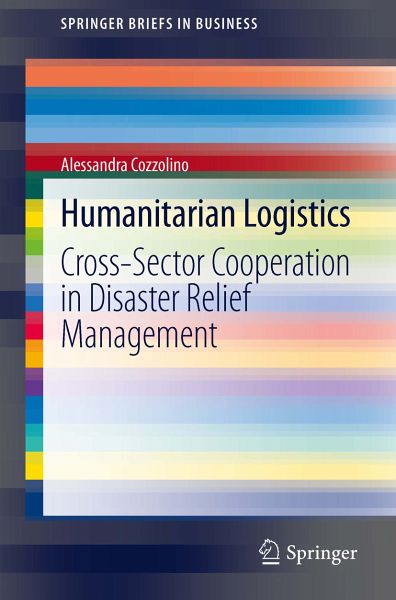
Humanitarian Logistics (eBook, PDF)
Cross-Sector Cooperation in Disaster Relief Management
Versandkostenfrei!
Sofort per Download lieferbar
40,95 €
inkl. MwSt.
Weitere Ausgaben:

PAYBACK Punkte
20 °P sammeln!
¿¿¿¿¿¿¿¿¿¿¿¿Humanitarian logistics has received increasing interest both from logistics academics and practitioners as a result of the dramatic increase in both natural and man-made disasters. The impact on affected populations can be all the more limited as much as the logistics operations in response to emergencies are effective and efficient. Collaboration with various relevant actors involving in the emergency resolution can help to reduce costs, increase speed, and improve the leanness/agility level in the humanitarian supply chain, and viceversa, poor coordination among them ...
¿¿¿¿¿¿¿¿¿¿¿¿Humanitarian logistics has received increasing interest both from logistics academics and practitioners as a result of the dramatic increase in both natural and man-made disasters. The impact on affected populations can be all the more limited as much as the logistics operations in response to emergencies are effective and efficient. Collaboration with various relevant actors involving in the emergency resolution can help to reduce costs, increase speed, and improve the leanness/agility level in the humanitarian supply chain, and viceversa, poor coordination among them is cited as an explanation for performance gaps. As disasters become increasingly complex better collaboration not only with government agencies, military units, humanitarian organizations, but also through partnerships with private business becomes more and more important. However, such partnerships are not easy as organizations in the two sectors are extremely different. The main aim of this study is exploring more in depth the partnership between profit and non-profit in emergency relief operations, with a specific attention to the cross-learning potential for both the logistics service provider (profit) and the humanitarian organization (non-profit).
Dieser Download kann aus rechtlichen Gründen nur mit Rechnungsadresse in A, B, BG, CY, CZ, D, DK, EW, E, FIN, F, GR, HR, H, IRL, I, LT, L, LR, M, NL, PL, P, R, S, SLO, SK ausgeliefert werden.





